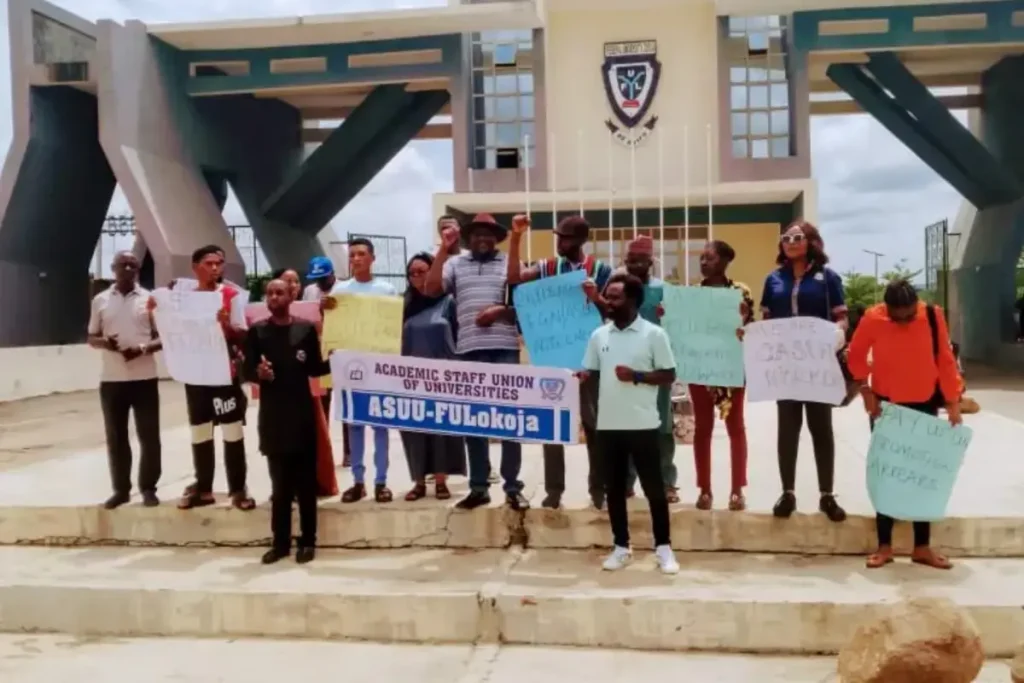CurrentReport Blog On June 25, 2024, the Academic Staff Union of Universities (ASUU) emphasized its call for the Federal Government to remove its members from the Integrated Payroll and Personnel Information System (IPPIS) and fulfill the promises made in the 2009 renegotiation agreements. This appeal was made by Dr. Joshua Silas, the Chairman of ASUU’s Federal University Lokoja (FUL) chapter, during a protest at the university’s Felele campus.
Dr. Silas addressed the press following the protest, underscoring the nationwide demonstrations orchestrated by ASUU to highlight their grievances and urge the government to take immediate action. He pointed out that the government’s failure to meet the 2009 renegotiation terms has left the union with no choice but to publicly express their dissatisfaction.
“We are carrying out these protests nationwide as directed by the national body of ASUU in solidarity to urge the federal government to promptly meet our demands,” said Dr. Silas.
ASUU’s long-standing demand revolves around the implementation of the 2009 agreements which were renegotiated with the federal government. Dr. Silas noted that despite several promises, the government has consistently failed to address these issues, leaving the union’s members in limbo.
“A lot has been done and government promised to meet our needs but since 2009 to 2024 till now, nothing has been done because government has failed to honour the agreements,” he stated.
Highlighting the severe impact of the government’s inaction, Dr. Silas mentioned that the current economic conditions have exacerbated hardships for ASUU members, with some even losing their lives due to these challenges.
“Enough is enough; this is totally unacceptable because many of our members have died due to the present economic hardships,” he lamented.
The protest not only aimed to draw public attention to the ongoing struggles but also served as a warning of potential industrial action if the government does not address ASUU’s demands. The union suspended its last strike in October 2022, hoping for a resolution that has yet to materialize.
“We urge the government to do the needful because ASUU should not be blamed for any industrial action anytime from now,” Dr. Silas warned.
The contentious issue of ASUU’s members being included in the IPPIS system has been a significant point of contention. ASUU argues that the system undermines the autonomy of universities and the unique nature of academic work. The union continues to advocate for the removal of its members from the IPPIS as part of the broader resolution of their demands.
As ASUU continues its nationwide protests, the call for the government to honor its commitments becomes ever more urgent. The union’s message is clear: without immediate and effective action, the stability of Nigeria’s higher education system remains at risk. The academic community and the public at large now watch closely, hoping for a swift and positive response from the federal government.












